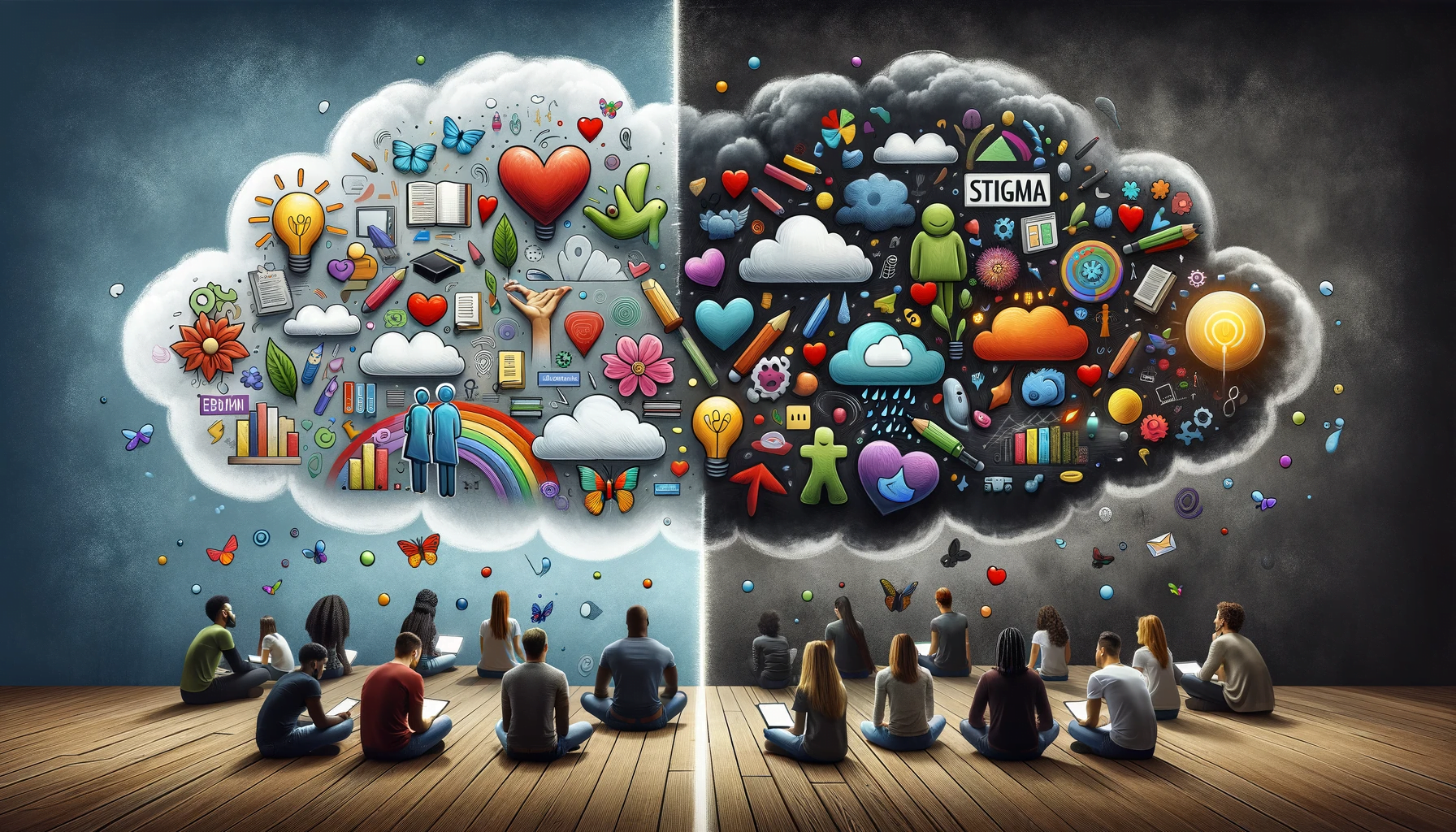Introduction:
Mental health is an integral part of overall well-being, yet it is often overshadowed by stigma and misunderstanding. Education is a powerful tool in changing perceptions, breaking down barriers, and fostering a more inclusive and supportive environment for those affected by mental health issues. This article explores the importance of mental health education and how it can effectively reduce stigma and promote a more understanding society.
Understanding Mental Health Stigma:
Stigma refers to the negative attitudes and beliefs that society or individuals hold about mental health issues. It can manifest in various forms, such as discrimination, avoidance, and derogatory language, leading to significant consequences for individuals, including reluctance to seek help, social isolation, and worsened mental health conditions. Stigma is often rooted in a lack of understanding, fear, and misconceptions about mental illness.
The Role of Education in Combating Stigma:
- Increasing Awareness: Education helps increase awareness about the realities of mental health issues. By providing accurate information and dispelling myths, educational initiatives can change perceptions and encourage more empathetic attitudes towards those experiencing mental health challenges.
- Promoting Understanding and Empathy: Through education, individuals can learn about the signs and symptoms of various mental health conditions, understand the experiences of those affected, and develop empathy. Personal stories and testimonials can be particularly effective in fostering a deeper understanding and connection.
- Encouraging Open Dialogue: Education creates opportunities for open dialogue about mental health. By discussing mental health openly and honestly, we can normalize these conversations, reduce fear and embarrassment, and encourage individuals to seek support when needed.
Strategies for Effective Mental Health Education:
- Curriculum Integration: Integrating mental health education into school curricula can ensure that children and adolescents receive accurate and age-appropriate information. This early intervention can shape positive attitudes and prepare young people to support themselves and others.
- Workplace Training: Offering mental health training in the workplace can help create a more supportive and understanding environment. Employees and managers can learn to recognize signs of mental distress, provide appropriate support, and implement policies that promote mental well-being.
- Community Programs: Community-based programs can reach a wider audience, including those who might not be in school or work settings. These programs can focus on specific communities or groups, tailor messages to cultural contexts, and engage local leaders to promote change.
- Online and Media Campaigns: Leveraging online platforms and media can amplify the message of mental health education and stigma reduction. Social media campaigns, websites, and apps can provide accessible resources, share stories, and create communities of support.
Challenges in Mental Health Education and Stigma Reduction:
While the benefits of mental health education are clear, there are challenges in implementation and impact. These include cultural differences in understanding and expressing mental health, existing prejudices, and the vast range of mental health conditions that require nuanced approaches. Additionally, resource limitations can affect the reach and quality of educational initiatives.
The Impact of Reducing Stigma:
Reducing stigma has a profound impact on individuals and society. It can lead to increased rates of individuals seeking help, improved mental health outcomes, and a more inclusive and supportive community. Furthermore, reducing stigma can alleviate the burden on healthcare systems by encouraging early intervention and treatment.
Conclusion:
Mental health education is a crucial step towards a society where mental well-being is understood, valued, and supported. By addressing stigma through education, we can open doors to better mental health for all, encouraging empathy, understanding, and a collective effort to support those affected by mental health issues. As we continue to break down the barriers of stigma, we create a healthier, more compassionate society for future generations.

